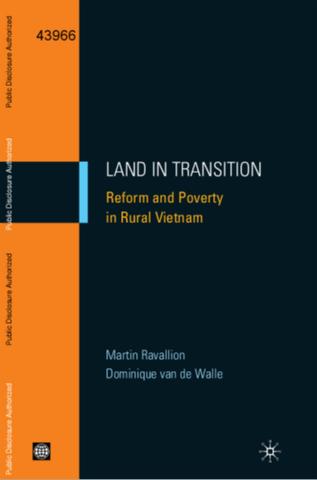Securing Africa's Land for Shared Prosperity : A Program to Scale Up Reforms and Investments
This is covers land administration and
reform in Sub-Saharan Africa, and is highly relevant to all
developing countries around the world. It provides simple
practical steps to turn the hugely controversial subject of
"land grabs" into a development opportunity by
improving land governance to reduce the risks of
dispossessing poor landholders while ensuring mutually
beneficial investors' deals. This book shows how Sub


